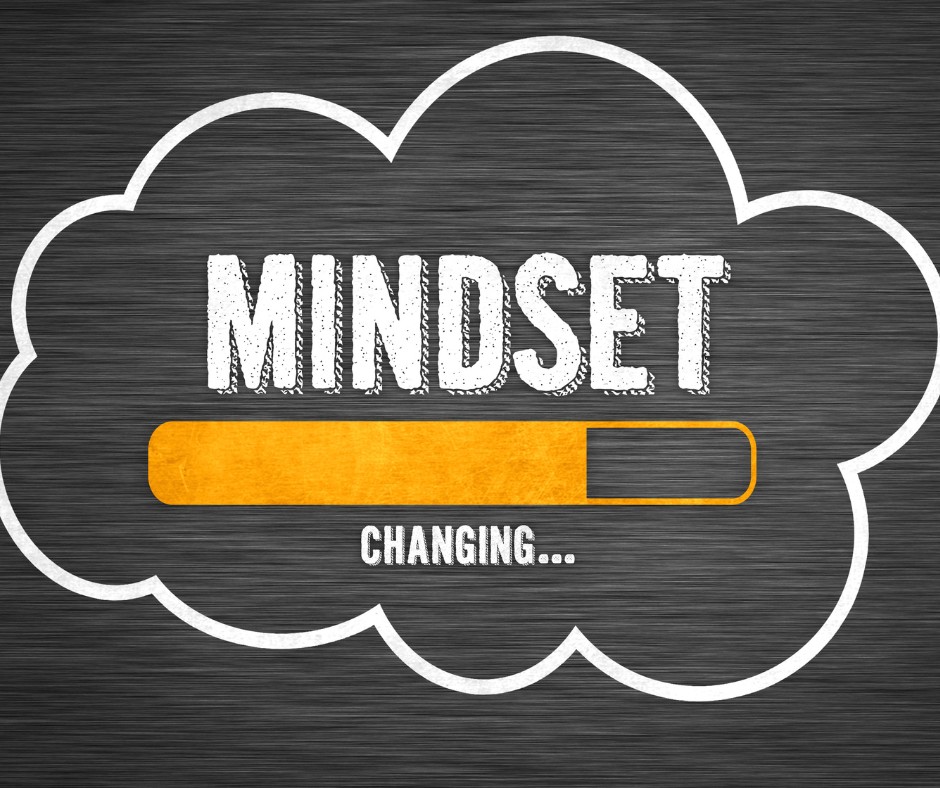By: Dr. Cassandra Faraci & Alexa Vernola, LPC
If you’ve read any of our blogs or newsletters or follow our social media consistently, you’re probably aware that we’re pushing a common theme out there – it’s often not the person, event, or situation that negatively impacts mental health but the way the mind perceives these things.
For example, imagine someone failing a test (situation). Person A might think, “I’m so stupid. I’m not surprised I failed.” Person B, on the other hand, might have a different perception: “Yikes. I haven’t mastered this material yet. I should schedule some tutoring and put more time into studying, and I’ll likely pass the next time.” Notice how Person A and Person B experienced the same event, but their brains perceived it very differently.
While there are many ways to describe and categorize perceptions, one of the most famous ways is fixed mindset vs. growth mindset. A fixed mindset involves a set of beliefs that views intelligence and skills as stable, unable to be changed with effort. A growth mindset, on the other hand, views intelligence and skills as changeable through efforts. In our example above, Person A has a fixed mindset, explaining the situation as due to perceived negative personal traits outside of one’s control; Person B has a growth mindset and has explained the same negative event as due to changeable factors in one’s control.
There are so many resources available to more fully explain the benefits of a growth mindset and the downsides of a fixed mindset. In general, having a growth mindset is significantly better for mental health, improving our resilience and likelihood of problem solving and working around roadblocks while maintaining a healthy sense of self (see our previous blog on those healthy core beliefs). A fixed mindset tends to be worse for mental health.
Simply shifting your mindset (which, we know, can take a lot of practice if you’ve had many years of living with a fixed mindset) can make all the difference to your mental health. Here are examples of mindset shifts you can start practicing RIGHT NOW:
- I can’t do this. —-> I can’t do this yet, but I’m still learning. With practice, I’ll likely get it.
- I always make mistakes. —-> I sometimes make mistakes. That’s what humans do, and it’s normal. The important thing is that I learn from these mistakes and maybe even think of “mistakes” as “learning opportunities” and “education” and not as something bad for me.
- They’re better than me. I’m no good. —-> They’re better than me right now, but I wonder if they’ve had more practice than me. I can practice more and get better. Also, I can learn from them to help me on my journey of improving.
- I’m not good at this. —-> I’m not good at this right now, but with effort, I can get better. Also, I should check in with myself on my standards. Maybe I am good at this, but I’d like to be even better.
- Failure means I should stop trying. Why bother? I’m no good and never will be. —-> Each failure is a chance to learn and be better. All humans fail. It’s unrealistic for me to expect my brain to master something on the first attempt. Brains don’t work that way!
For some, the mindset shift is simple. For others, this can be quite challenging. We’re here to help. Call us at (908) 914-2624 or email us info@anxietyandbehaviornj.com.
